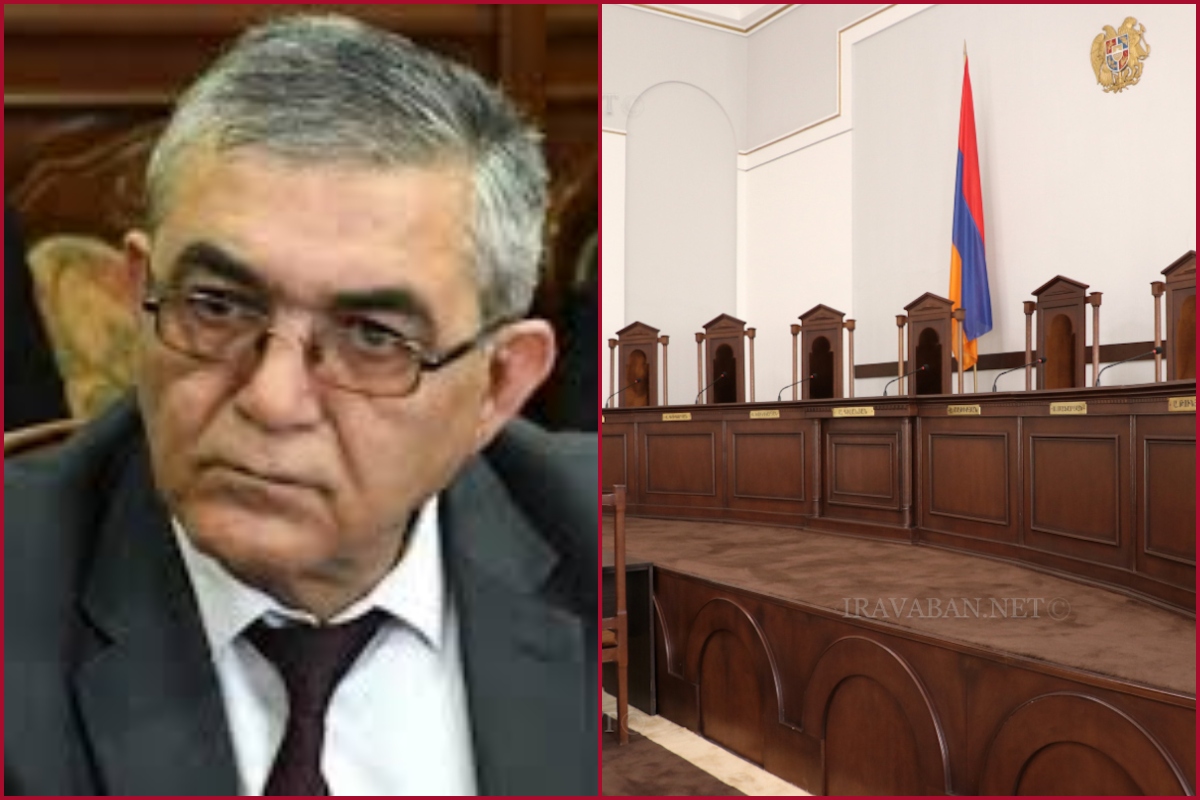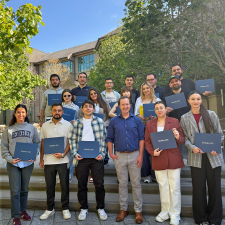The Constitutional Court, through a written procedure, has examined the case concerning the constitutionality of Article 184, Paragraph 1, Clause 1 of the Administrative Procedure Code. This examination was initiated based on the application filed by Lia Mnatsakanyan and Hasmik Mnatsakanyan.
The provision in question states: “1. The right to submit an application for review of a judicial act on the grounds of newly discovered or new circumstances belongs to:
- parties to the proceedings, as well as their legal successors, provided that the disputed legal relationship allows for succession…”
According to Iravaban.net, on December 6, 2022, the European Court of Human Rights ruled in the case of “Mnatsakanyan v. Armenia” that Armenian courts had violated Judge Samvel Mnatsakanyan’s right to a fair trial. The international court ordered the payment of 4,900 euros to the deceased judge’s heirs as compensation for non-pecuniary damage. Mnatsakanyan had been dismissed from his position in 2011 on the grounds that he had not adequately justified his decision to release a defendant on bail.
He had appealed this decision through all levels of Armenian courts but had not succeeded.
The deceased former judge’s widow, Lia Mnatsakanyan, and daughter, Hasmik Mnatsakanyan, have filed an appeal requesting the annulment of the Presidential decree of the Republic of Armenia. The Court of Cassation decided to refuse to admit the applicants’ cassation appeal for proceedings to review the judicial act.
The applicants contend that it is necessary to clarify and assess the completeness of the exception to the right to reopen proceedings for the restoration of an individual’s rights and those of their legal successors in the event of death. This exception relates to the general rule of reopening a judicial case with their participation as a new circumstance. They argue this should be evaluated from the perspective of guaranteeing the constitutional rights to human dignity, inviolability of honor and reputation, realization of civil rights and obligations, and the right to an effective remedy of judicial protection as stipulated in the Code.
In summary, they request the invalidation of the phrase “provided that the disputed legal relationship allows for succession” in Article 184, Paragraph 1, Clause 1 of the Administrative Procedure Code, specifically regarding new circumstances.
The respondent, conversely, maintains that it is permissible to submit an application for review of a judicial act based on newly discovered or new circumstances if the application is submitted by a party to the proceedings, or their legal successor, in cases where the disputed legal relationship allows for succession.
The Constitutional Court, presenting its legal position within the framework of the case, emphasizes that while parties to the proceedings have the right to submit an application for review of a judicial act in the presence of relevant circumstances, their legal successors can exercise this right only if the disputed legal relationship allows for succession.
The Constitutional Court has also noted that the rights to judicial protection and to apply to international human rights protection bodies would be rendered ineffective if an individual lacks a genuine opportunity to seek review of a judicial act based on the decision of an international body.
The Court of Cassation, in its legal position, also stated that Samvel Mnatsakanyan’s violated right – the right of access to court – is a right inextricably linked to the individual, which is not subject to transfer through succession.
Regarding this assertion by the Court of Cassation, the Constitutional Court has noted that the essence of the right to judicial protection is the raison d’être of courts. Consequently, interpretations that contradict the essence of this right undermine the meaning of both the right to judicial protection and the existence and mission of the court as an exclusive body provided for its implementation.
The decision states: “Thus, the Constitutional Court holds that under the interpretation in question by the Court of Cassation, the exclusion of the transferability of the right to judicial protection through succession may undermine the essence of the right to judicial protection and the meaning and significance ascribed to it by the constitutional legislator. This is considering that the fundamental right in question aims at the effective judicial protection of fundamental rights and freedoms guaranteed by the Constitution. Under the opposite interpretation, the guarantee of these fundamental rights and freedoms would be merely declarative in nature.”
The Constitutional Court also emphasized that Samvel Mnatsakanyan’s widow, Lia Mnatsakanyan, and daughter, Hasmik Mnatsakanyan, have the right to continue the ongoing proceedings on his behalf.
The Constitutional Court, presided over by Judge Arman Dilanyan, ruled that an application for review of a judicial act based on new circumstances submitted by the legal successor of a party to the proceedings is subject to examination in the absence of circumstances completely precluding their succession in terms of the substantive rights arising from the resolution of the dispute.
The Constitutional Court found that the judicial act is subject to review, contrary to the position of the Court of Cassation.















